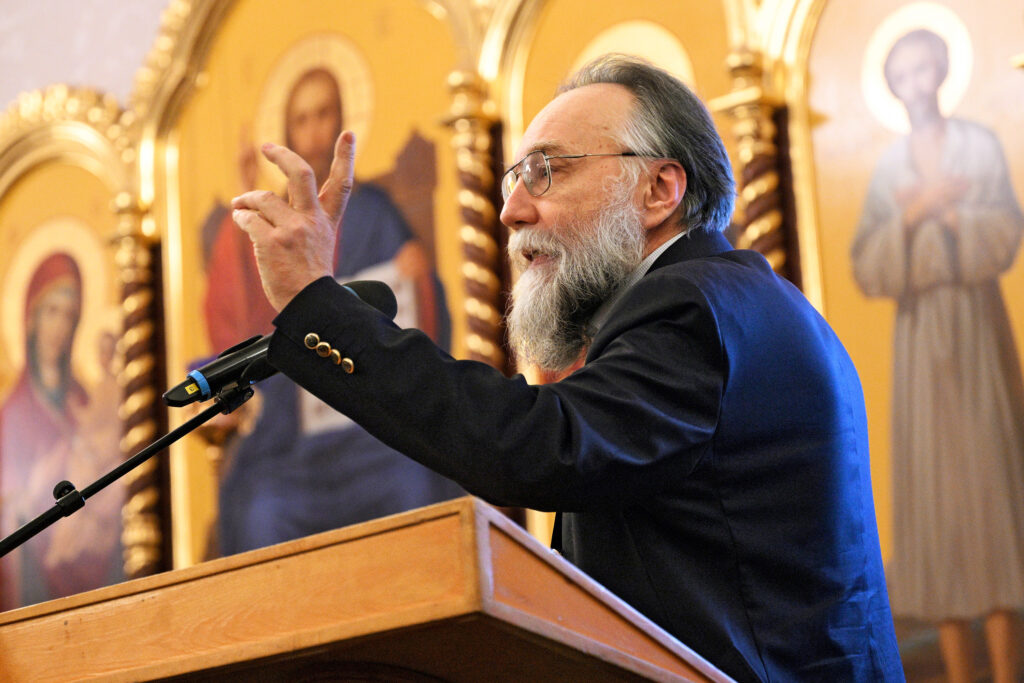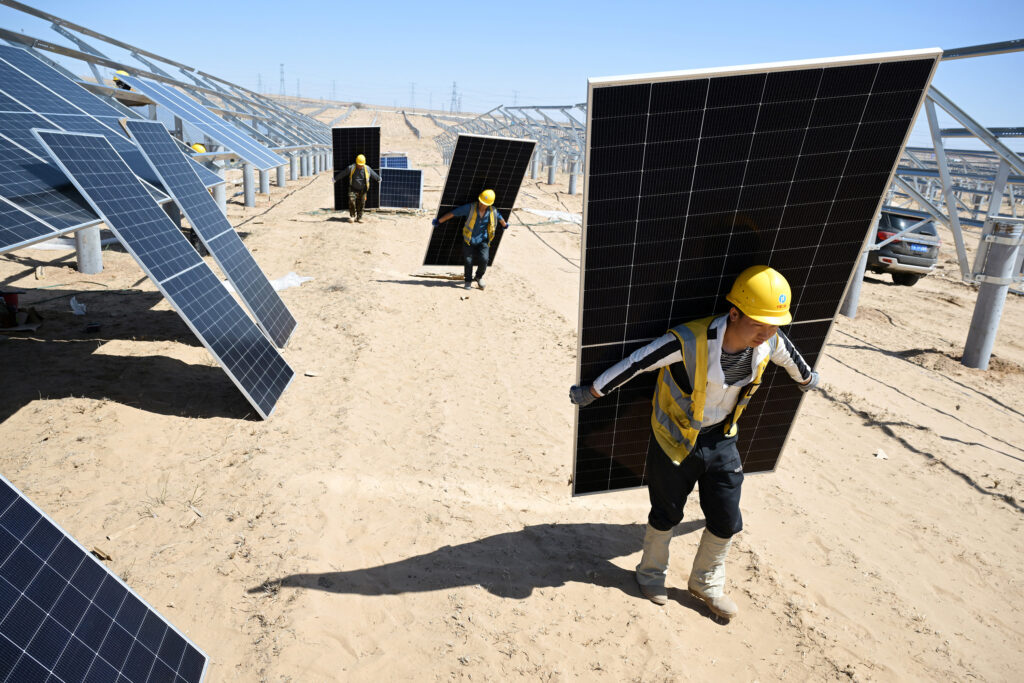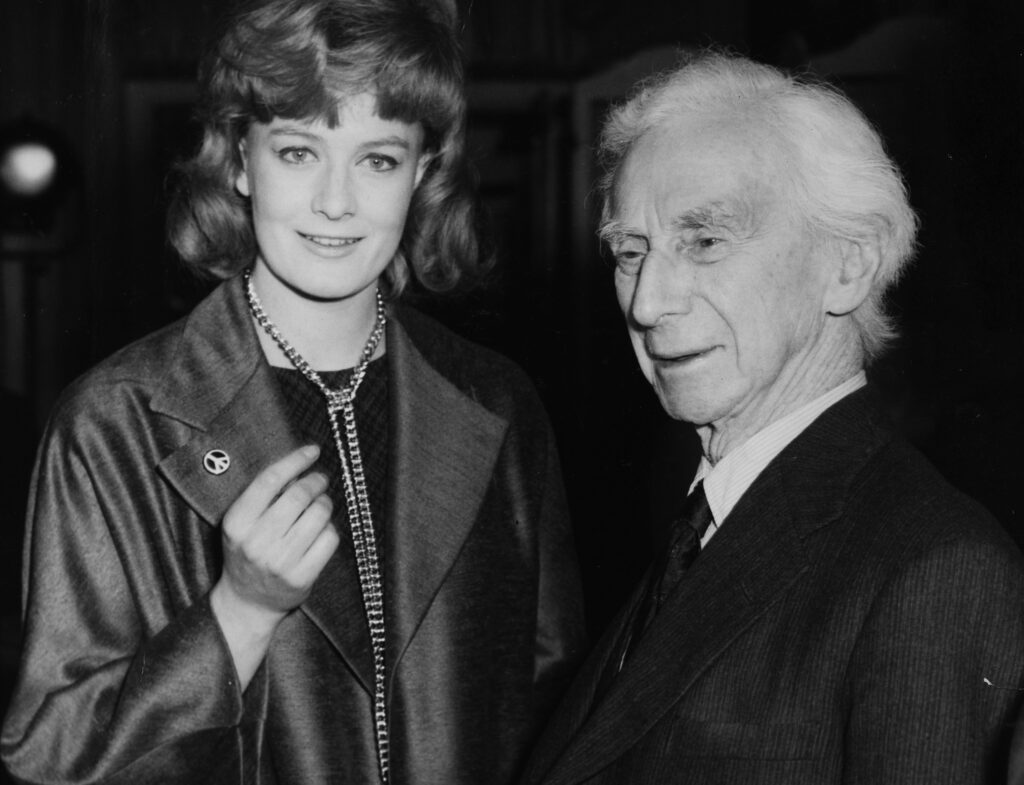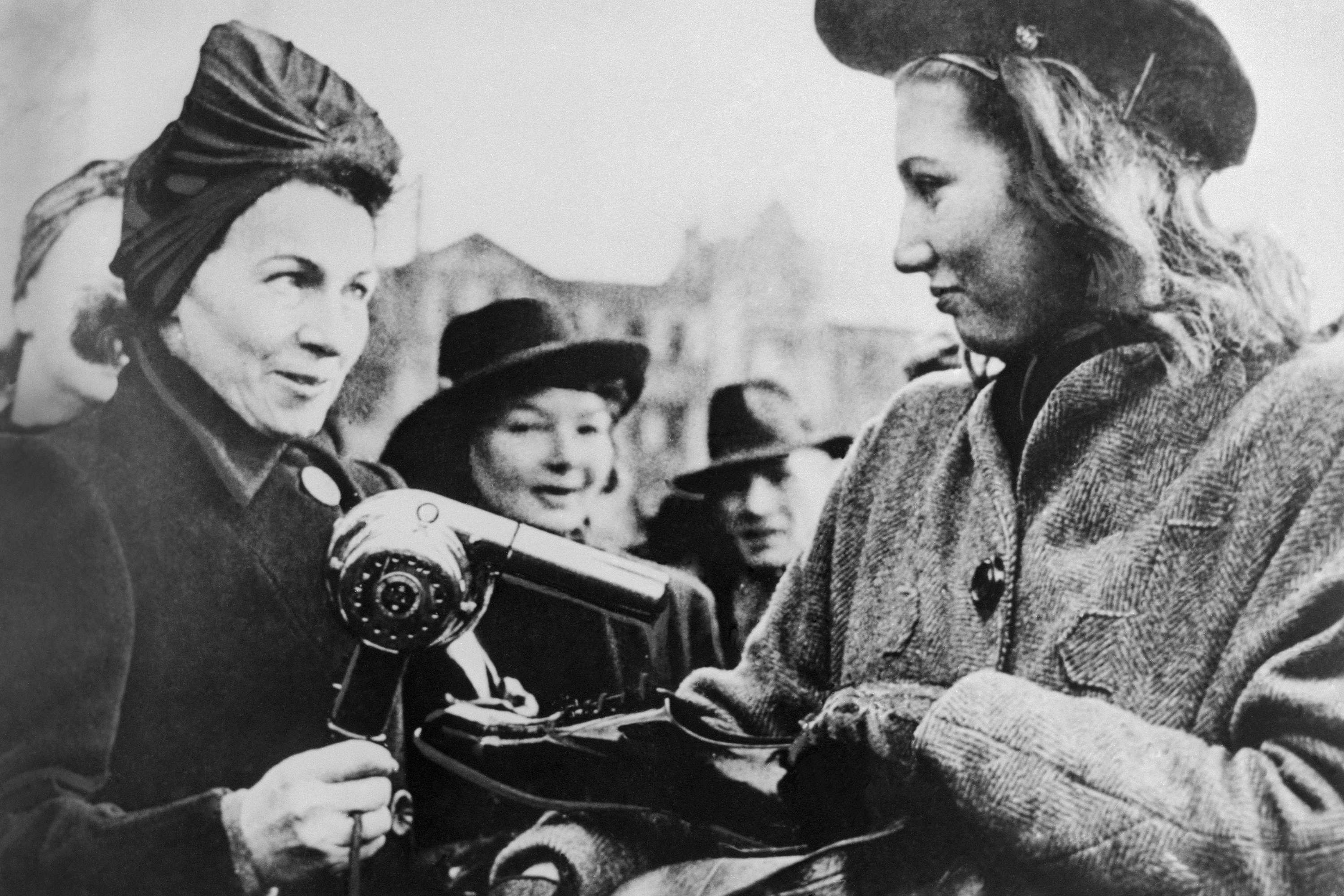Historian of political thought Miri Davidson has long focused her research on the relationship between anthropology and the far right. In this highly original essay, Davidson considers the contemporary right’s recent embrace of the moral economy. The lessons she draws are instructive for a world in thrall to the nation-state.
A decades-long observer of the Chinese condition, few are better placed than Kaiser Kuo to understand where China has been and where it’s headed. Kuo’s piece will provoke you to argue back. It’s important reading and an analeptic to the customary cant.
And one of our greatest philosophers of mind, Tim Crane, offers a judicious appraisal of a recent social history of analytic philosophy. Crane’s apologia for analytic philosophy is absent of invective and in a register of pluralism; even Continentalists might appreciate his subtle conclusions.
Thea Riofrancos leads our curated section in an interview from the recent Baffler. Riofrancos is popping up in a lot of places lately, in part because the political scientist is asking all the right questions. Her new book Extraction grapples with how best to balance necessary mining with the (even more necessary) demands of climate catastrophe.
The enormously talented writer Lily Lynch is next in an insightful review of Lea Ypi’s prequel to her acclaimed book Free. Lynch’s great knowledge of the Western Balkans yields intriguing and subtle insights.
Ivan Krastev and I occasionally write together, but this time we appear separately in the latest Prospect magazine. Ivan compels us to confront the reality that liberalism after populism looks different than it did before, with Keir Starmer and Donald Tusk facing disfigured states and overly riven societies. On my side, I am merely asking that we accept that freedoms of speech and expression are inherently political—and suggest that this frame will serve us better in our polarizing moment.
Our musical selection for our half-centennial issue is the eclectic Egyptian combo Al Massrieen. Late ’70s in sound and spirit, their disco-laden track “Sah” would have fit in perfectly on the strobe-lit dance floor of Studio 54.
—Leonard Benardo, senior vice president at the Open Society Foundations
The Moral Economy of the Far Right

Miri Davidson
The Ideas Letter
Essay
The European New Right advances a “moral economy” that repudiates both egalitarianism and global markets in favor of a hierarchical, “organic” order grounded in reciprocity, class complementarity, and civilizational belonging. While this rightwing alternative to capitalism echoes Karl Polanyi, Davidson argues that it departs from him by subordinating markets to the moral-spiritual aims of a homogeneous community, endorsing a strong state that dispenses selective welfare to “deserving” producers. In the end, the far-right moral economy does not abolish capitalism but seeks to reconfigure it toward tighter political control and a values-driven economic order.
”For European New Right thinkers such as the French political philosopher Alain de Benoist, the French theorist and journalist Guillaume Faye, and the Russian political philosopher Alexander Dugin, globalization has ripped the moral heart out of the economy. It has uprooted systems of production and circulation from their native soils, allocating them to the portfolios of transnational elites. In doing so, it has sliced away at the natural bonds that once held communities together: their organic social security systems, ethics of exchange, and traditional work practices. Drained of meaning and spiritual purpose, economies have been reduced to impersonal mechanisms driven only, in the words of de Benoist, by ‘the general submission of the world to the market rationale, the reign of quantity, the rationale of profit, the axiomatic force of interest, and the transformation of all values into merchandise.’”
The Great Reckoning
What the West Should Learn From China

Kaiser Kuo
The Ideas Letter
Essay
China’s transformation from a “rising” to a “risen” power marks a historic shift that challenges the West’s long-held assumptions about modernity, development, and legitimacy. Kuo contends that the West in general, and the United States, in particular, must confront the unsettling reality that liberal democracy and free-market capitalism are no longer the sole engines of progress or innovation.
“It was once axiomatic that a dynamic market economy required liberal democracy; China has showcased an authoritarian capitalism that works anyway. It was believed that social media would inevitably liberate the subjects of autocracies; then the Arab Spring fizzled, Edward Snowden reframed surveillance debates, and platform politics went sideways at home. It was assumed that genuine innovation required political freedom; then Chinese firms and labs began producing world-class results while operating within a very different information ecosystem. Each inversion chips away at the catechism. Each surprise compounds the shock.“
“Bloodless Pedantry”

Tim Crane
The Ideas Letter
Essay
In a review of Christoph Schuringa’s new book, A Social History of Analytic Philosophy, Crane is unconvinced by the author’s Marxian contention that analytic philosophy’s much-vaunted political neutrality masks pernicious liberal and empiricist ideologies. Crane notes that Schuringa fails to explain analytic philosophy’s institutional history and how religious and political movements have shaped specific ideas. While the book is unsuccessful as a social history, it’s an illuminating intellectual history that may help philosophers better understand their own vocation.
“If philosophers are to seriously address the hostility and incomprehension that they encounter, they need to start with a plausible account of their own intellectual discipline. They may tell themselves that philosophy is a technical subject-matter, with its own techniques and high standards, and in a way this is correct. But they also need to tell a story about how philosophy in this sense relates to many other things that the world has counted as philosophy. … It seems to me that the real value of Schuringa’s book—once we detach the ideology critique and the social history—is that it makes a serious and plausible attempt to tell such a story.”
Schrodinger’s Element
A conversation with Thea Riofrancos
Ajay Singh Chaudhary
The Baffler
Interview
Chaudhary’s conversation with Riofrancos turns the climate debate from carbon abstractions to the real politics of lithium, where the green transition collides with extractive frontiers. Riofrancos insists on “ruthless empiricism”: decarbonization requires materials, but minimizing extraction and maximizing public goods demands democratic planning, not eco-modern fantasies of an EV in every driveway or a purist embargo on mining. The argument is sharpened by Latin America’s anti-extractivist strategies now diffusing across the North, and by China’s ascendancy that both tempts and troubles Western policymakers.
“There is a basic fact, which is that anything you produce under capitalism, or even some other type of economic system, is going to have some environmental impact because we’re interacting with nature or metabolizing nature in all these ways. So as we’re electrifying mobility with the goal of dramatically drawing down emissions from our most polluting sector in the United States, the second most polluting sector globally, the question arises: Is the way that we’re doing this actually producing environmental benefits, or are those climate benefits effectively canceled out by the localized ecological harms that the production of electric vehicles causes? … The short answer is no, but that does not fully settle the matter.”
Lea Ypi’s Reckoning With Family and the Legacy of Revolution
Lily Lynch
Jacobin
Essay
Lea Ypi’s new book Indignity: A Life Reimagined is a searching excavation of Albania’s past and her family’s place within it. Moving between archival discovery and philosophical reflection, Ypi reconstructs the moral and political entanglements of a generation that passed from Ottoman aristocracy to socialist persecution, finding in their contradictions a mirror for our own. For Lynch, Indignity is less a work of historical recovery than a meditation on inheritance: how the unfinished revolutions of the twentieth century persist in our digital age, where surveillance, class hierarchy, and moral compromise have only changed their form.
“No wonder the Balkans suffer from mass emigration and a chronic sense of stagnation: the lack of agreed-upon history makes building anything new impossible. Ypi’s book is an intervention against this oblivion…. But Indignity does more than just itemize the past or put it in its proper order. Ypi’s disorienting questions force us to reevaluate our own assumptions about the present. As she takes us on a tour of her family’s twentieth-century history, it becomes clear that the clean break we like to think we’ve made with the past is illusory. History is still unfolding, revealed to us slowly, sometimes almost imperceptibly, through the introduction of small signs.”
Liberalism in the End Times
Ivan Krastev
Prospect
Essay
Krastev surveys the exhaustion of liberalism in an age defined by populism. From Washington to Warsaw to London, he argues that centrist governments have proved incapable of turning post-populist “normality” into renewal, trapped between legality, efficacy, and popular impatience. As ecological and demographic fears on the left and right respectively remake politics around rival apocalyptic visions, Krastev echoes Michael Ignatieff’s council that the liberal task is to survive revolutionary times.
“Climate activists and national populists share the sense of living in the world’s last days … Yet while both the ecological left and the anti-migration right are animated by this revolutionary sensibility, they are not equally positioned to benefit from the current revolutionary temper. In Italy, Giorgia Meloni’s polling remains stable even though migrant numbers have not declined, because her voters trust that she wants what they want. Meanwhile, bold climate policies did not lift the Greens when they were in the German government, because many ordinary voters were ready to give the Greens a mandate to change the world under the condition that nothing would change their way of life. … The political field is slanting to the right, and the left is failing to shift the debate towards issues on which it feels more comfortable.”
Freedom of Speech Isn’t a Divine Right, Even in America
Leonard Benardo
Prospect
Essay
Benardo revisits the American ideal of free speech, arguing that the once-principled insistence on defending all speech has curdled into a tool of partisan suppression. From cancel culture to charges of antisemitism in relation to campus protests, free speech is now a weapon in the culture wars. Against the myth of timeless constitutional rights, Benardo proposes that free expression be seen as a living, contested ideology—less a sacred freedom than a human creation that evolves with democracy itself.
“Riven over questions of speech and expression, American civil society is now caught up in a social crisis that has tragically set the stage for political violence. Polarisation may never have been so raw and extreme. And yet there is something instructive about the current conjuncture. Just as the Supreme Court (let’s hope) no longer appears as a neutral body standing above the people and arriving at decisions with transcendence, but instead as a political institution informed by political preferences and commitments, so too might we transform our approach to speech.”
